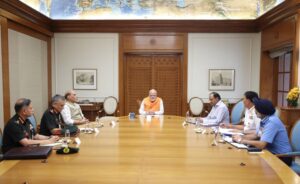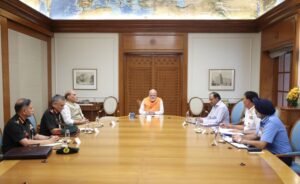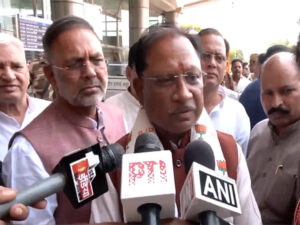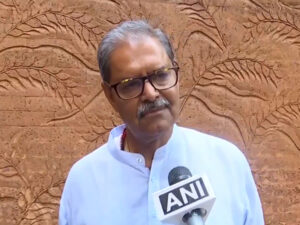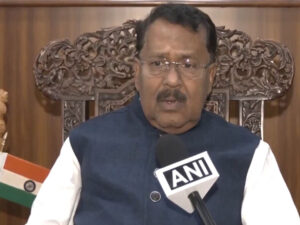“Why do they have their eyes on something that is for poor?”: Jitendra Awhad on Waqf Bill
Thane (Maharashtra) [India], August 10 (ANI): Targeting the Centre over Waqf (Amendment) Bill, Nationalist Congress Party (Sharadchandra Pawar) leader Jitendra Awhad said on Saturday that this is an attack on the Waqf’s land and questioned why the government is eyeing something that is for the poor.
“I am happy with the way Supriya Sule opposed this bill and also highlighted the faults in it. Our stand is clear that the government should not attack Waqf lands. This is an attack on the Waqf’s land. Waqf lands are not for sale in the market. Why do they have their eyes on something that is for the poor? Why do you have a dirty eye on all these minorities?” Awhad said.
NCP (SCP) MP Supriya Sule urged the government to either withdraw the bill completely or send it to a standing committee.
“Please do not push agendas without consultations,” Supriya Sule said in Lok Sabha.
Meanwhile, a 31-member Joint Parliamentary Committee including 21 Lok Sabha MPs and 10 Rajya Sabha MPs has been constituted to look into the Waqf (Amendment) Bill, 2024.
Union Parliamentary Affairs Minister, Kiren Rijiju introduced The Waqf (Amendment) Bill and proposed sending it to a joint parliamentary committee after Opposition parties objected to its provision.
He also introduced the Mussalman Wakf (Repeal) Bill, 2024 which seeks to repeal the Mussalman Wakf Act, 1923.
The Waqf (Amendment) Bill, 2024, Waqf Act provides for the renaming of the Waqf Act, 1995, as the Unified Waqf Management, Empowerment, Efficiency and Development Act, 1995.
It seeks to clearly define “waqf” by any person practicing Islam for at least five years and having ownership of such property and ensure that the creation of Waqf-alal-aulad does not lead to the denial of inheritance rights to women.
It also seeks to omit the provisions relating to “waqf by user”, provide the functions of the Survey Commissioner to the Collector or any other officer not below the rank of Deputy Collector duly nominated by the Collector for the survey of waqf properties, provide for a broad-based composition of the Central Waqf Council and the State Waqf Boards and ensure representation of Muslim women and non-Muslims.
The bill seeks to omit section 40 relating to the powers of Board to decide if a property is waqf property, provide for filing of waqf accounts by mutawallis to the Board through a central portal for better control over their activities, reform the Tribunal structure with two members and provide for appeals against the orders of the Tribunal to the High Court within a specified period of ninety days.’

